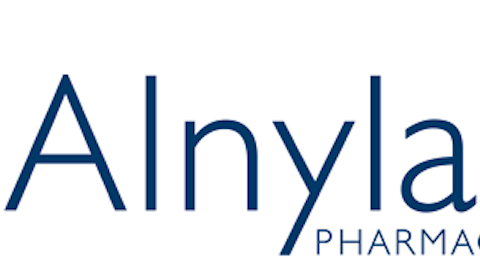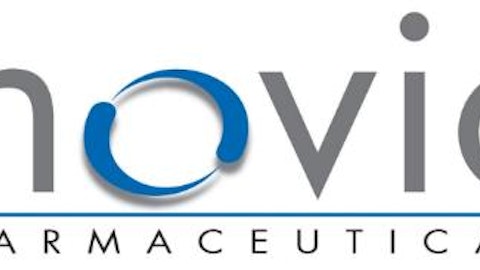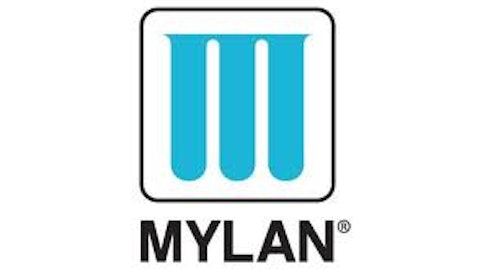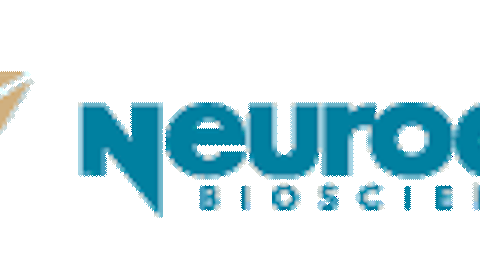With the SPDR S&P Biotech Index up 40% over the trailing-12-month period, it’s evident that investment dollars are willingly flowing into the biotech sector. Keeping that in mind, let’s have a look at some of the rulings, studies, and companies that made waves in the sector last week.
Despite being in between second- and third-quarter earnings season, it was a monstrously busy week in the biotech world. As such, you get a bit of treat this week as I’m expanding this from the usual top five to the top six stories you should have on your radar, in case you missed them.
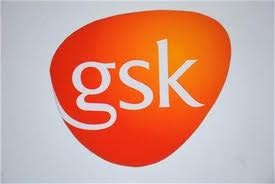
Just the two of us …
As always, let’s start the weekend with some good news. Perhaps nothing proved more satisfying than the meeting between the Food and Drug Administration’s panel and GlaxoSmithKline plc (ADR) (NYSE:GSK) /Theravance regarding anoro ellipta on Tuesday. The chronic COPD treatment received a nod of confidence from the FDA panel, which voted 11-2 in favor of recommending approval, noting that its safety and efficacy had been well demonstrated and that new treatment options are sorely needed in long-term COPD maintenance. Although there is no such thing as a sure bet when it comes to the FDA, with anoro ellipta’s PDUFA decision expected by Dec. 18, it appears very likely that it will be approved.
Another company making waves this week is small-cap immunotherapy vaccine maker Inovio Pharmaceuticals Inc (NYSEMKT:INO), which on Tuesday announced a global partnership with Roche to develop and commercialize therapies aimed at treating hepatitis-B and prostate cancer. Under the terms of the deal, Inovio Pharmaceuticals Inc (NYSEMKT:INO) gets $10 million upfront and is eligible to receive development and commercial licensing milestones of up to $412.5 million. It also gives Roche immediate licensing access to INO-5150 for prostate cancer, INO-1800 for hep-B, and Inovio’s proprietary Cellectra electroporation technology for the delivery of these vaccines. With a big-name pharmaceutical partner, investors may now be required to take Inovio Pharmaceuticals Inc (NYSEMKT:INO) more seriously.
Keeping with the “buddy” theme, ISIS Pharmaceuticals, Inc. (NASDAQ:ISIS) also popped nicely this week after announcing an expanded antisense drug development partnership with Biogen Idec on Monday. Under the terms of the deal (its fourth such partnership with Biogen Idec is less than two years), ISIS Pharmaceuticals, Inc. (NASDAQ:ISIS) will receive $100 million upfront and has the potential to earn up to $4 billion in milestones and royalties (assuming every last drug they develop is approved) in exchange for Biogen’s gaining access to its proprietary antisense drug development platform. With 31 ongoing clinical trials and 12 development partners, ISIS Pharmaceuticals, Inc. (NASDAQ:ISIS) remains a must-watch up-and-coming biotech juggernaut.
It’s all in the data
And then there were the “three stooges” of the clinical data world that left investors longing for the weekend.
No company had investors wishing for a reset button more than Neurocrine Biosciences, Inc. (NASDAQ:NBIX), which lost 34% on the week after delivering disappointing mid-stage results for its drug for tardive dyskinesia, or TD, NBI-98854. The drug, which aims to reduce symptoms of TD — a disease marked by involuntary muscle movements, especially of the lower face — proved to be not statistically significant from the placebo in the 50mg dose but did reach statistical significance in the 100mg dose. Why this is bad news is Neurocrine expected the 100mg dose to be a max-tolerated dosage and had been looking for solid results in the 50mg dosing category. The good news is that the 100mg dose appears to work; the bad news is that the company needs to run an additional phase 2 trial with even higher doses than 100 mg before it can even consider moving NBI-98854 to a late-stage trial, meaning the need to spend more time and more money.
